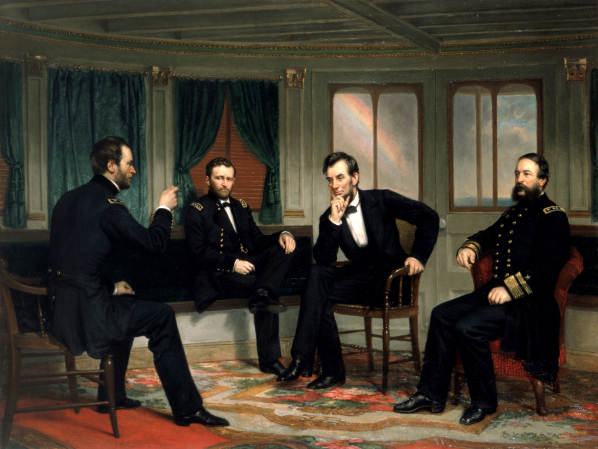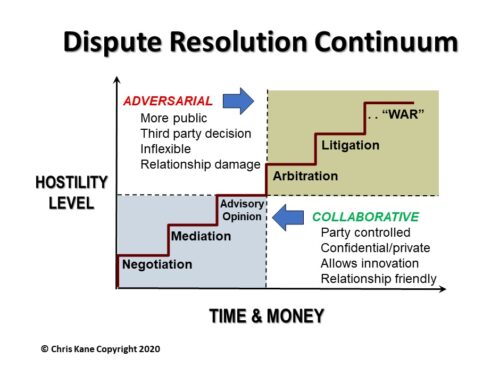 If mediation had been considered a method for resolving litigation in the 1800’s, as it is by most courts today, Abe Lincoln would have likely been a big proponent. Lincoln’s “Notes on the Practice of Law” written in 1850 (fn-1) contains many of Lincoln’s impressions and opinions during the time he was a practicing lawyer. One often referred to section is Lincoln’s opinion regarding litigation. This passage reads as follows:
If mediation had been considered a method for resolving litigation in the 1800’s, as it is by most courts today, Abe Lincoln would have likely been a big proponent. Lincoln’s “Notes on the Practice of Law” written in 1850 (fn-1) contains many of Lincoln’s impressions and opinions during the time he was a practicing lawyer. One often referred to section is Lincoln’s opinion regarding litigation. This passage reads as follows:
“Discourage litigation. Persuade your neighbors to compromise whenever you can. Point out to them how the nominal winner is often the real loser—in fees, and expenses, and waste of time.”
The arguments made back then against litigating, certainly hold true today, in particular for commercial disputes. In 1989 Supreme Court Chief Justice Warren E. Burger, quoted Lincoln’s comment above in the forward to American Law Institute Study on Paths to a “Better Way”- Litigation, Alternatives, and Accommodation, (see 1989 DUKE L.J. 808, 809). Many would say the Chief Justice’s endorsement, was the beginning of the serious movement toward alternative dispute resolution in America which continues today.
Another quote in the same section had to do with the role of lawyers as peacemakers. “As a peace-maker the lawyer has a superior opportunity of being a good person. There will still be business enough.” For those of us who are practicing lawyers or mediators committed to collaborative methods of dispute resolution, Lincoln had an positive vision for a lawyer-mediator’s business plan.
The painting pictured above is entitled “The Peacemakers”, by George P.A. Healy and was made in 1868 after Lincoln had died. A copy is displayed in the White House. The painting shows Lincoln in March of 1865 with his two main Army Generals (Grant and Sherman) and a Naval Admiral (Porter) planning decisive military efforts to end the war. In contrast to the paintings title, these military leaders all helped end the conflict through use of force, not compromise. There are some issues where a negotiated compromise doesn’t work – and to Lincoln the preservation of the Union was such an issue.
fn-1 – see the book The Living Lincoln, 1955, and Abraham Lincoln, Speeches and Writings 1832-1858, 1989, The Library of America, pages 245-246




